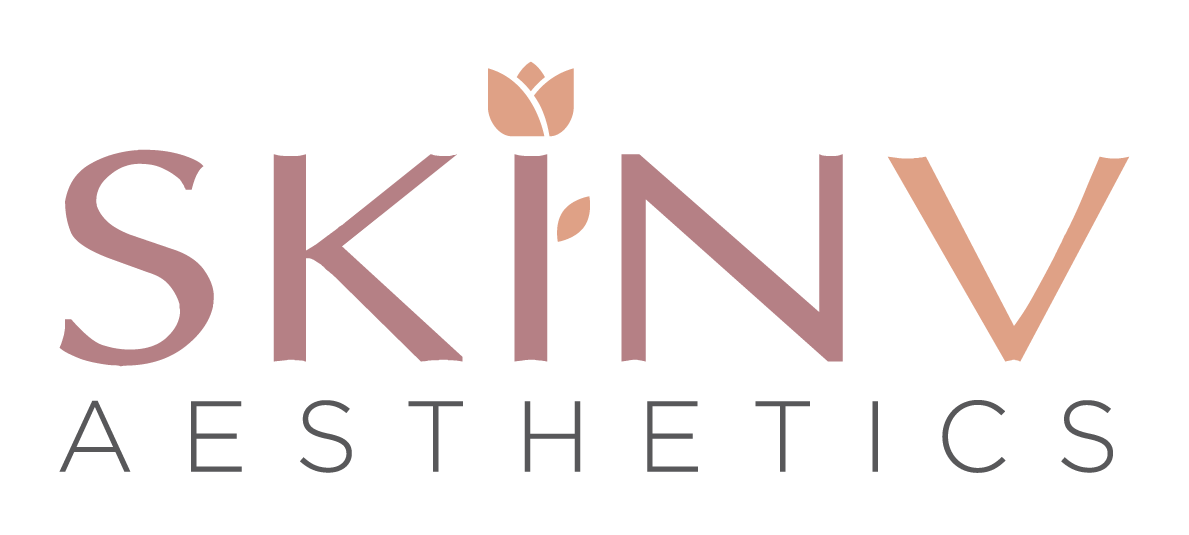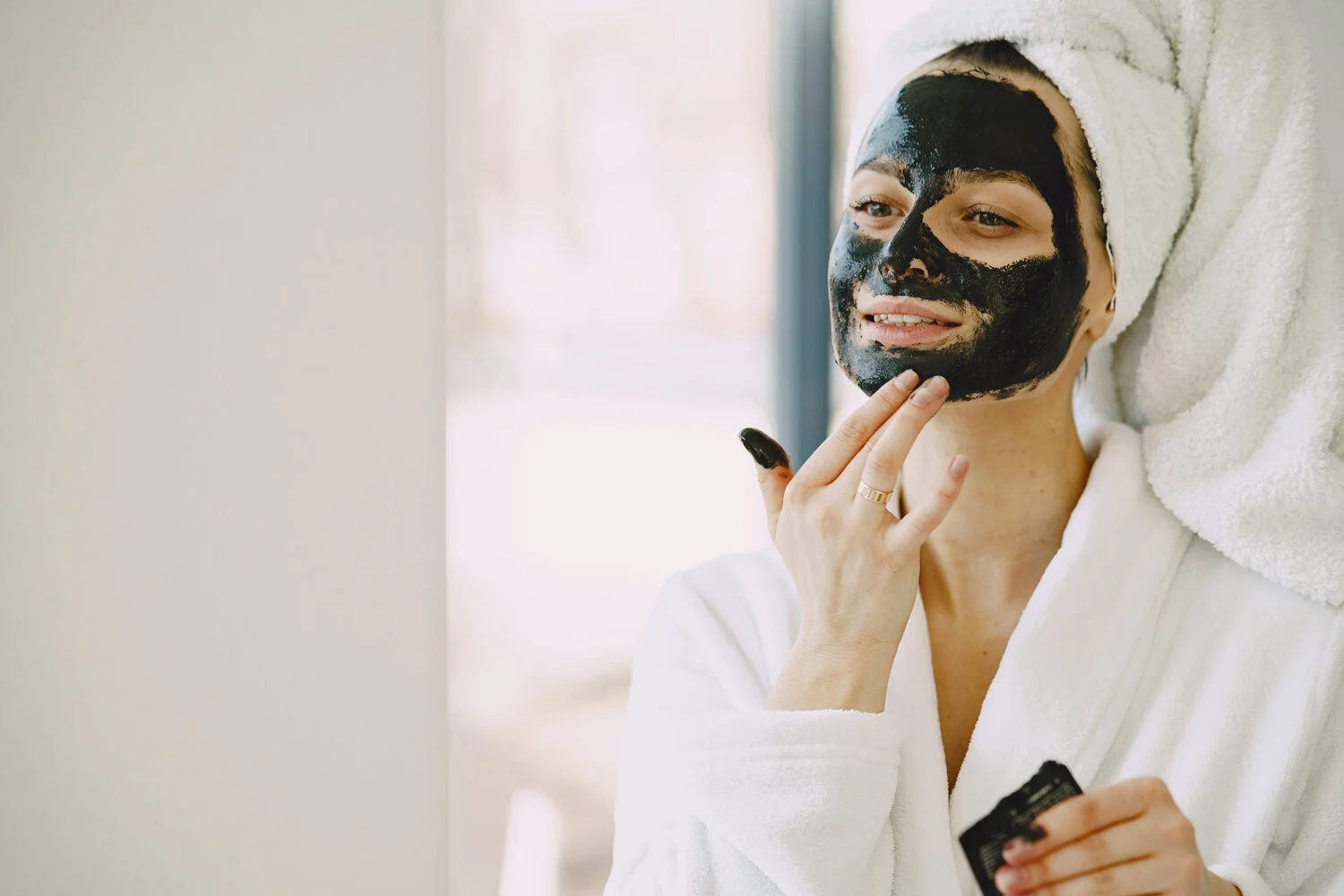Skincare Basics: What Facial Mask Is Best For Your Skin?
Facial masks have come back in a big way, and for good reason.
Not only does a mask provide adequate hydration, it can help deliver the active ingredients deeper into our skin, assisting in the over-all rejuvenation and correction of common skin conditions and concerns.
Which is why the facial mask is a vital step in any professional facial you receive from the spa.
Whether you are looking to brighten and firm, detox and clarify, or soothe and hydrate, there is a mask for every type of face.
With all the masks on the market today, it can be a bit overwhelming trying to select one that will provide the most benefit and be the best mask for your skin.
Learn about the different facial masks and how to select the right one for your skin.
Understanding Your Skin
In order to reap the benefits a quality mask has to offer, you must first know your skin type and the conditions you want to treat. This will ensure you get the biggest bang for your buck.
Our skin is a unique organ that requires a customized approach to maintain health and balance, a one size fits all skin care routine will not work.
First, identify the current state of your skin and keep in mind that our skin’s needs are always changing.
Dry Skin is usually lacking oil or water or both, and in need of more moisture to keep the skin healthy. Dry skin needs ingredients like hyaluronic acid or shea butter to stay adequately hydrated and moisturized.
Sensitive skin tends to become over-reactive and inflamed, so it needs to be cooled down with soothing ingredients like aloe vera or colloidal oatmeal.
Oily Skin types are more prone to blocked pores, and in need of clays or salicylic acid to help soak up that excess oil.
Normal Skin is typically balanced, healthy skin that doesn’t need any particular ingredient. Any mask is suitable for normal skin.
Combination skin types are a bit more tricky as they tend to be both dry and oily. You can section off your face and use multiple products to treat different areas. Use a mask suited for oily skin in the oily areas and a mask for dry skin in the other sections.
Types Of Facial Masks
Cream Masks
Cream masks are ideal for NORMAL to DRY SKIN types because they are rich with nourishing oils and moisturizers that sink deep into the surface and help replenish skin cells. When you add ingredients like hyaluronic acid, enzymes, or vitamin C, you get a multi-functioning mask that tackles much more than dry skin. If you are looking for an anti-aging option that does it all, try a vitamin c mask like our Vital C Enzyme mask. For deeper hydration and TLC, opt for a Healing Balm.
Pro tip: Layer your cream mask on top of your favorite hydrating serums like hyaluronic acid. The mask will help drive the serum in deeper, giving your skin layers of hydration.
Clay Masks
Clay masks are best suited for COMBINATION to OILY SKIN, and ACNE prone skin. Clay masks help to detoxify and de-congest pores by soaking up that extra oil secreted on the surface. Clay masks also help calm inflammation and tighten the skin. If you are using pure clay from the health food store make sure to use with some caution and follow the instructions as clay masks are very alkaline and can be too drying for certain skin types. For a gentle clay mask that will detoxify, hydrate, and balance your skin, try a Probiotic Purifying Mask.
Pro Tip: Use Steam or place a warm towel over the skin while your mask sits. The heat will work with the mask to keep it moist and soften the skin. this process helps to liquify the sebum so it purges more easily.
Gel Masks
Gel masks are usually formulated for DEHYDRATED and SENSITIVE SKIN, but can be beneficial for all types. Gel masks are typically lightweight and fast absorbing-offering extra hydration to thirsty skin. You can find ingredients like green tea, aloe vera, cucumber, and botanicals that help to soothe the skin and calm inflammation. Try a gentle, soothing gel mask that will quickly calm and balance the skin like our favorite, Ormedic Balancing Gel Mask.
Pro Tip: Layer a cream mask on top of your gel mask for a more pro-like treatment that offers deeper penetration and added hydration.
Sheet Masks
Sheet masks, including hydrogel sheet masks are great for ALL SKIN types. Sheet masks are favored by most because they are very effective and fun to use. The no-fuss application and ability to multitask makes them so convenient, it’s hard not to use them.
Sheet masks are highly absorbent, making them an excellent choice for parched or aging skin. If you are trying to address more than just hydration, look for a mask that has added ingredients suited for your skin type/ condition.
To calm irritated skin or boost hydration, try a hyaluronic based sheet mask like Hydrating Sheet Mask.
Hydrogel masks hold much more moisture than regular gels or sheet masks, making them highly effective at softening fine lines, wrinkles, and other signs of aging.
They are usually formulated with ingredients like firming peptides, hydrating hyaluronic acid, 24k gold, and loads of antioxidants.
Hydrogel masks can instantly quench hydration and inflammation, and plump up the skin for a youthful appearance.
When regularly used and with supporting ingredients and treatments, you can notice significant change in the skin.
For smoother skin and a radiant glow, try a Hydrating Hydrogel Sheet Mask. If you want a red carpet anti-aging treatment that produces transformative results, a Placenta Stem Cell Mask can work magic on your skin.
Pro Tip: Apply your favorite serum before the sheet mask so the occlusive mask can penetrate the serum and lock in moisture. After you remove the mask, massage in the remaining serum and apply your moisturizer on top.
Peel Off Masks
Peel off masks have always been a popular choice when masking at home. Peel off mask gently lift off the top layer of dead skin and all the gunk that comes with it.
The mask is applied with a gel-like consistency then must be peeled off when dried. You instantly feel a tightening effect and your pores feel lighter.
If you have active acne or sensitive skin, this type of mask should be avoided as the peeling of the surface can cause added irritation and spread acne bacteria.
Homemade Masks
Homemade face masks are trending on the internet now days. There are so many yummy recipes out there and the best part is, you have full control of the ingredients that are going on your skin.
If you are looking for a fun time with friends or family, go crazy and mask away. But, if you have any type of skin condition you are trying to treat, the homemade mask doesn’t have the active ingredients to make any real change in the skin.
For a hydrating mask that doubles down as a delicious snack, try whipping up fresh avocado and local honey.
Tips For Using A Facial Mask At Home
Know Your Type- If you want to pick the right mask that will provide the most benefit, make sure you know and understand your skin type. If you are unsure, see an esthetician for a skin analysis. Select the mask that is formulated for your skin type and be sure to check ingredients.
Cleanse- Wash your face with the appropriate cleanser and pat dry. Properly cleansing your skin is important if you want to get the full benefit of your mask.
Exfoliate- By removing the outer layer of dead skin cells, your skin is better able to absorb all the nutrients and active ingredients your mask has to offer. For optimal skin-health, it is recommended that you exfoliate 1-2 times per week.
Serum- For pro-like results, layer your favorite serum underneath the mask (thinnest to thickest). The mask will help drive the serum deeper into the skin, boosting your treatment and results.
Patch test- Always patch test the mask or any skincare product for that matter. Apply the product on the side of your neck or wrist by following the instructions. Keep an eye out for redness, irritation, or rashes . If the skin has remained normal for 24-48 hours, you should be okay to use it on your face. It’s better to know if your skin will become reactive to the product prior to slathering on your entire face.
Moisturize- As with any skincare routine, finish with the appropriate moisturizer after the mask is removed. Using a serum prior to the moisturizer is ideal for ultimate results.
Step Up Your Skincare With A Masks
Most facial masks can be used up to 2-3 times per week ( check instructions). When used regularly and with the right products, they can really improve the health of your skin.
With the advancements in science and quality of active ingredients available, it’s no wonder facial masks have become such an essential staple in any effective skincare routine.
Whether you are using professionally formulated masks or creating one at home, masking can become a fun and exciting way to care for your skin.
If you are looking to step-up your skincare game, consider adding a facial mask to your routine. Just be sure it’s the right mask that is formulated for your skin type and condition.
Professional-grade skincare masks are best if you are seeking results, speak to an esthetician to see which mask is best for you.


